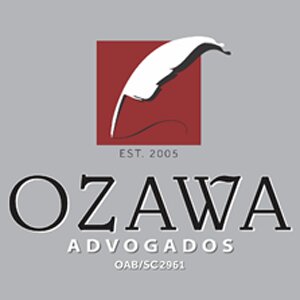Best Native People Lawyers in Balneário Camboriú
Share your needs with us, get contacted by law firms.
Free. Takes 2 min.
List of the best lawyers in Balneário Camboriú, Brazil
About Native People Law in Balneário Camboriú, Brazil
Native People, or Indigenous Peoples, in Brazil are recognized and protected by both national and local laws. In Balneário Camboriú, a city located in the state of Santa Catarina, there is a strong focus on ensuring the rights and well-being of Indigenous communities. These rights include land demarcation, cultural preservation, access to health care, and educational support. Although Balneário Camboriú is primarily urban and has a smaller Indigenous population compared to other parts of Brazil, local government agencies and organizations work to uphold national legal standards and honor the presence of Indigenous heritage in the region.
Why You May Need a Lawyer
Legal issues affecting Native People in Balneário Camboriú can be complex and often require specialized knowledge. Here are some common situations in which legal help may be necessary:
- Seeking recognition or enforcement of Indigenous land rights
- Protection from discrimination or violation of human rights
- Questions regarding government benefits, education, or health services
- Cases involving encroachment or illegal land use
- Ensuring cultural and religious rights are respected
- Conflict resolution within or between Indigenous communities
- Assistance with administrative procedures involving Indigenous status
- Legal disputes over employment or contracts
- Matters involving the protection of traditional knowledge or heritage
A lawyer specializing in Indigenous law can provide guidance, represent interests in negotiations or court, and help ensure your rights are protected according to both local and federal regulations.
Local Laws Overview
Local laws in Balneário Camboriú must adhere to the Brazilian Federal Constitution, which grants significant rights to Indigenous Peoples. While the city itself does not have extensive Indigenous territories, the protection of Indigenous rights is an important element in local governance. Key areas of law include:
- Land Rights - Recognition and protection of traditional Indigenous territories is guaranteed at a national level and respected locally.
- Cultural Heritage - The preservation of Indigenous culture, language, and practices is supported through municipal policies and educational programs.
- Health and Education Access - Local agencies coordinate with federal programs to provide health care and education tailored to the needs of Indigenous communities.
- Non-Discrimination - It is illegal to discriminate against someone on the basis of Indigenous identity, with legal recourse available through both local and federal channels.
- Community Consultation - Whenever projects or policies may impact Indigenous Peoples, consultation and free, prior, and informed consent are principles that should be followed.
Enforcement is typically managed by municipal administrative bodies and is subject to oversight from state and federal agencies, ensuring the alignment with Brazil’s national Indigenous rights framework.
Frequently Asked Questions
Are there Indigenous communities in Balneário Camboriú?
While the Indigenous population in Balneário Camboriú is smaller compared to other regions, there are residents who identify as Indigenous and participate in local cultural and social life.
What are the main legal rights of Native People in Brazil?
Indigenous Peoples have guaranteed rights to land, cultural expression, social inclusion, education, and participation in decisions affecting their communities.
Do I need proof of Indigenous heritage to access certain rights or services?
Yes, in many cases, documentation or official recognition of Indigenous status may be required to access specific benefits or protections.
What legal protections exist against discrimination?
Both local and federal laws strictly prohibit discrimination based on Indigenous identity and offer remedies for violations through legal action.
How is Indigenous land protected in or near Balneário Camboriú?
Any recognized Indigenous land is protected by federal law, and local authorities are obligated to respect these protections. Illegal occupation or use can be challenged in court.
Can Indigenous languages and cultural practices be taught in local schools?
Yes, Brazilian law encourages the inclusion of Indigenous culture and languages in educational curricula, and local schools may provide such opportunities when there is demand.
How do I seek legal assistance for Indigenous rights issues?
You can contact the Public Defender's Office, specialized Indigenous rights organizations, or private attorneys with expertise in Indigenous law.
Are there health care services specifically for Indigenous Peoples?
Yes, the Brazilian government operates programs providing specialized health care for Indigenous communities, coordinated locally through public health agencies.
What should I do if my rights as an Indigenous Person are violated?
You should document the incident, seek legal advice, and consider filing a complaint with the appropriate governmental body or court.
How are conflicts between Indigenous and non-Indigenous communities managed?
Conflicts are generally resolved through dialogue, mediation, and adherence to legal frameworks that prioritize the rights of Indigenous Peoples.
Additional Resources
If you are looking for support or information regarding Native People’s rights in Balneário Camboriú, you may find the following resources helpful:
- Municipal Secretariat for Social Assistance - for local support and referrals
- Fundação Nacional dos Povos Indígenas (FUNAI) - the main federal body on Indigenous issues
- Public Defender’s Office of Santa Catarina - provides free legal aid for those who qualify
- State Council for Indigenous Peoples of Santa Catarina - offers advocacy and guidance
- Local Indigenous associations - for community-based support and networking
Next Steps
If you need legal assistance involving Native People’s rights or issues in Balneário Camboriú, consider the following steps:
- Gather all relevant documents and information about your situation.
- Contact a local legal professional who specializes in Indigenous law or human rights.
- If you qualify, seek help from the Public Defender’s Office or relevant NGO.
- Document any issues or incidents clearly and keep copies of all correspondence.
- Engage with local Indigenous organizations for guidance and support.
Protecting your rights and interests is important. Do not hesitate to seek professional legal help to ensure you are properly represented and supported.
Lawzana helps you find the best lawyers and law firms in Balneário Camboriú through a curated and pre-screened list of qualified legal professionals. Our platform offers rankings and detailed profiles of attorneys and law firms, allowing you to compare based on practice areas, including Native People, experience, and client feedback.
Each profile includes a description of the firm's areas of practice, client reviews, team members and partners, year of establishment, spoken languages, office locations, contact information, social media presence, and any published articles or resources. Most firms on our platform speak English and are experienced in both local and international legal matters.
Get a quote from top-rated law firms in Balneário Camboriú, Brazil — quickly, securely, and without unnecessary hassle.
Disclaimer:
The information provided on this page is for general informational purposes only and does not constitute legal advice. While we strive to ensure the accuracy and relevance of the content, legal information may change over time, and interpretations of the law can vary. You should always consult with a qualified legal professional for advice specific to your situation.
We disclaim all liability for actions taken or not taken based on the content of this page. If you believe any information is incorrect or outdated, please contact us, and we will review and update it where appropriate.









